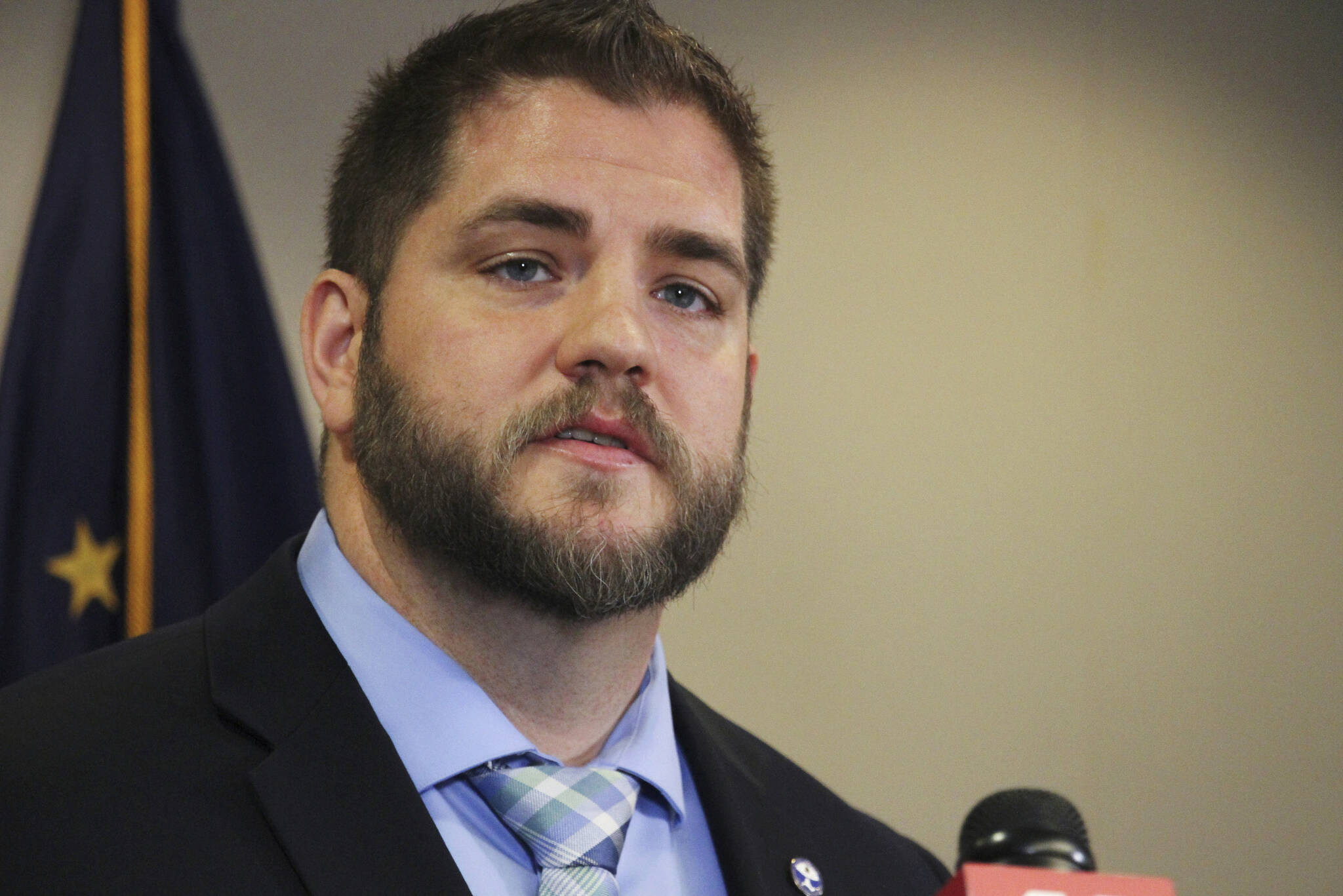By Adam Crum and Julie Anderson
On Thursday, Sept. 2, Gov. Mike Dunleavy expanded his special session agenda to include two pieces of legislation that will strengthen the state’s ongoing response to the recent COVID-19 surge.
The governor expanded his special session call to accelerate the response to the ongoing COVID-19 public health emergency that has fatigued and stressed Alaska’s health care system. Since early 2020, the Alaska State Hospital and Nursing Home Association (ASHNHA) and the Alaska Department of Health and Social Services (DHSS) have worked in partnership to enhance our health care network and to ensure that facilities, providers, and professionals on the front lines, have the resources they need to protect Alaskans during this difficult time. As the delta variant emerged in Alaska, our partnership has grown stronger as we’ve worked to identify additional tools and resources the state, with legislative support, could quickly bring online. The legislation introduced last week reflects those conversations and the specific requests for help made by those partners.
A question frequently asked: Can’t the governor just issue a new disaster declaration? The state statute (AS 26.23.010) establishing the governor’s powers under a Disaster Declaration does not give him the authority to create or amend state statutes law and he can only suspend what are called regulatory statutes. Because of this limitation in the Disaster Act it will take legislative action to respond to the articulated needs of the health care community. These changes can’t be accomplished under the governor’s authorities within the Alaska Disaster Act.
So what have we done to address these requests?
In response to ASHNHA’s request for additional licensed health care professionals, DHSS issued a Request for Proposal to General Services Administration contractors requesting 298 registered nurses, 105 certified nurses, and 53 other types of medical personnel. The health care boards under the Department of Commerce, Community, and Economic Development have already created Emergency Courtesy Licenses to expedite the licensure process as much as possible. However, DCCED and the State Board of Nursing do not have the staffing capacity to process hundreds of emergency courtesy license applications quickly.
The governor amended the call for the special session and introduced two bills. One was a new bill that expands the use of telemedicine and telehealth services and provides additional tools to expand our health care workforce and enhance capacity within the state’s health care system (SB 3006). The other is the Multistate Nurse Licensure Compact legislation that the governor introduced in January (HB 83 and SB 67).
This SB 3006 will temporarily allow out-of-state health care providers to offer telehealth and telemedicine services to patients in Alaska without holding an Alaska license, as long as they are licensed in good standing in another jurisdiction. This will reduce the need for Alaska residents to travel out of state to receive care. It also grants the director of the Alaska Division of Insurance the authority to order health care insurers to waive utilization review requirements, saving time and allowing for safe discharge of patients, and helping to free up critical hospital beds. Finally, the bill temporarily waives the requirement for hospitals and long-term care facilities to seek background checks from the state Department of Health and Social Services. Again, each of these tools were directly requested by our hospitals and nursing homes.
The Multistate Nurse Licensure Compact legislation will allow registered and practical nurses holding multistate licenses from any of the 38 participating jurisdictions to avoid a separate Alaska licensure process and begin work immediately. These are fully licensed nurses who under the multistate compact, have to meet a higher standard than Alaska’s own laws require, which protects the health and safety of Alaskans.
The NLC isn’t a silver bullet but it will go a long way to addressing our acute nursing shortage and fill critical vacancies in our health care system. It is also strongly supported by the military and U.S. Department of Defense as it will improve licensure options for military spouses, veterans and service members. The percentage of military spouses in Alaska is the second-highest in the nation, and nursing is one of the top professions held by those spouses. Further, the DoD looks at professional licensure portability among states when making strategic basing decisions to ensure locations under consideration have sufficient support for the unique needs of military families who relocate frequently. Compacts, such as the NLC, are seen as the “gold standard” in professional licensure portability. Adopting the NLC would provide better support to Alaska’s health care infrastructure, Alaska’s military members and their families.
We call on the Alaska Legislature act quickly to pass these two critical pieces of legislation that will provide the requested assistance to our health care facilities and providers at this crucial time; and ask that Alaskans consider reaching out to their legislators to encourage such action. If Alaskans have questions on either piece of legislation, they can send questions to DCCED.Commissioner@alaska.gov.
Adam Crum of the commissioner of the Alaska Department of Health and Social Services. Julie Anderson is the commissioner of the Alaska Department of Commerce, Community, and Economic Development.

